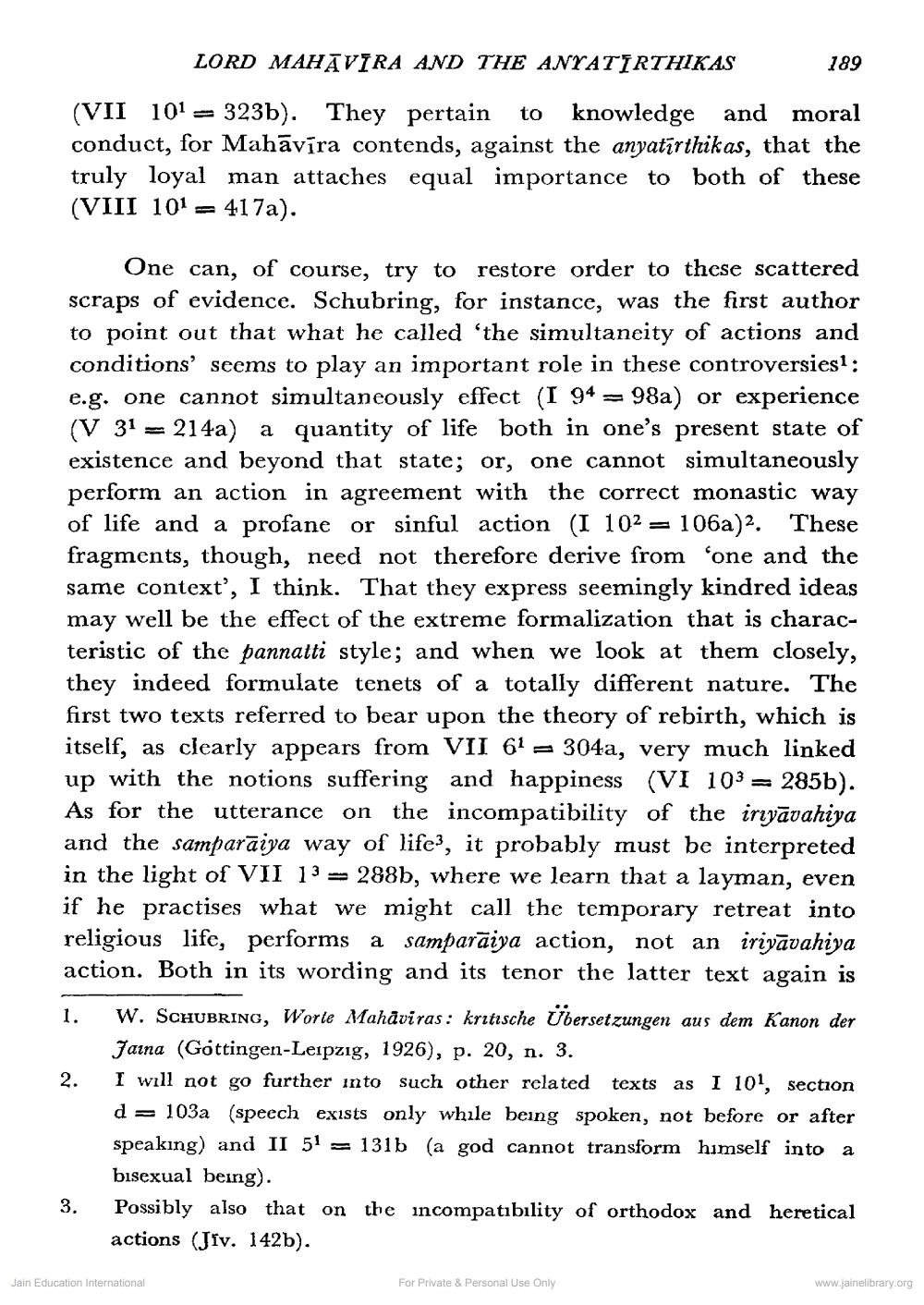________________
LORD MAHAVIRA AND THE ANYATIRTHIKAS
189
(VII 101 – 323b). They pertain to knowledge and moral conduct, for Mahāvīra contends, against the anyatīrthikas, that the truly loyal man attaches equal importance to both of these (VIII 101 = 417a).
existence and bey
One can, of course, try to restore order to these scattered scraps of evidence. Schubring, for instance, was the first author to point out that what he called 'the simultaneity of actions and conditions' seems to play an important role in these controversies? : e.g. one cannot simultaneously effect (1 94 = 98a) or experience (V 31 = 214a) a quantity of life both in one's present state of
stence and beyond that state; or, one cannot simultaneously perform an action in agreement with the correct monastic way of life and a profane or sinful action (1 102 = 106a)2. These fragments, though, need not therefore derive from one and the same context, I think. That they express seemingly kindred ideas may well be the effect of the extreme formalization that is characteristic of the pannatti style; and when we look at them closely, they indeed formulate tenets of a totally different nature. The first two texts referred to bear upon the theory of rebirth, which is itself, as clearly appears from VII 61 = 304a, very much linked up with the notions suffering and happiness (VI 103 = 285b). As for the utterance on the incompatibility of the iriyāvahiya and the samparāiya way of life?, it probably must be interpreted in the light of VII 13 = 288b, where we learn that a layman, even if he practises what we might call the temporary retreat into religious life, performs a samparāiya action, not an iriyāvahiya action. Both in its wording and its tenor the latter text again is 1. W. SCHUBRING, Worle Mahäviras: kritische Übersetzungen aus dem Kanon der
Jaina (Göttingen-Leipzig, 1926), p. 20, n. 3. 2. I will not go further into such other related texts as I 101, section
d = 103a (speech exists only while being spoken, not before or after speaking) and II 51 = 131b (a god cannot transform himself into a
bisexual being). 3.
Possibly also that on the incompatibility of orthodox and heretical actions (Jiv. 142b).
Jain Education International
For Private & Personal Use Only
www.jainelibrary.org




